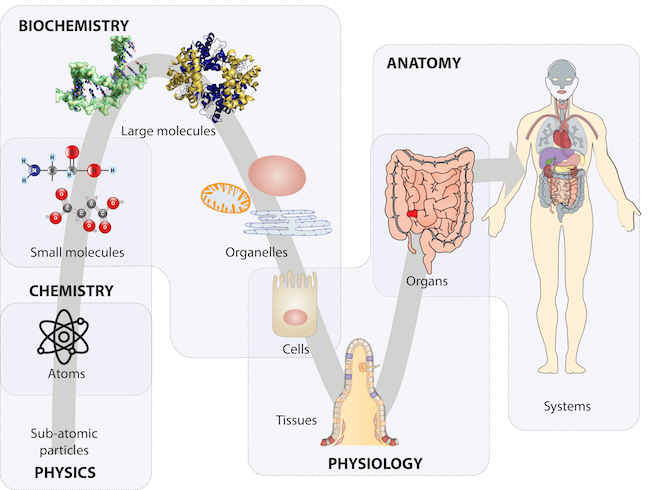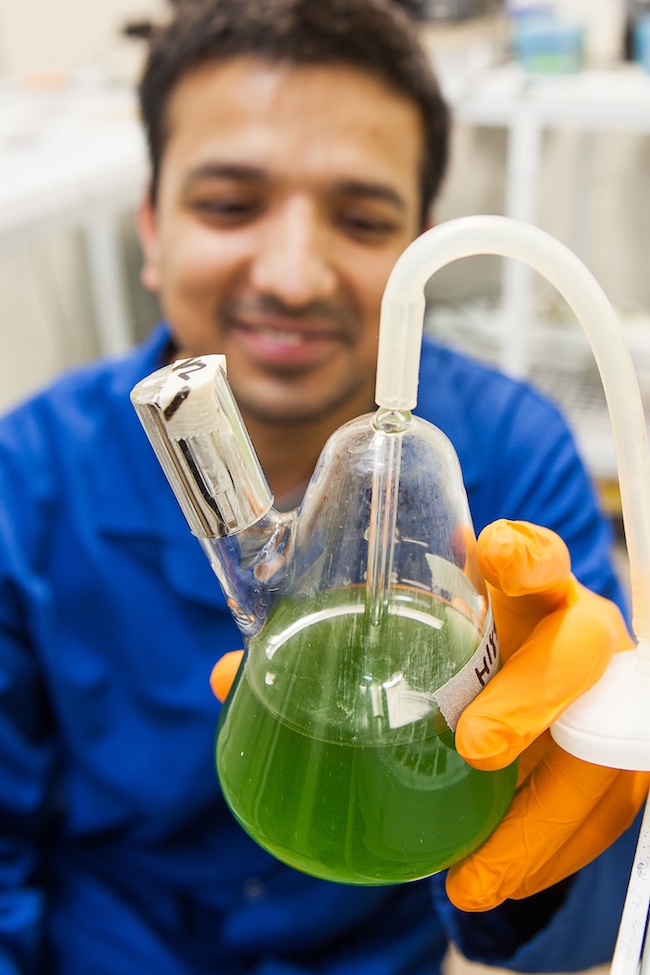This page provides biochemistry-related careers advice for high school students.
If you have been enjoying learning about biology at high school, particularly...
| NCEA Level 2 Biology | NCEA Level 3 Biology |
|
|
...then you will probably enjoy biochemistry at university.

What is biochemistry?
Biochemists aim to explain how all living things work at the molecular level. They study molecules in order to understand life and death, how cells can be turned into bio-factories, how to make improved medicines and crops, how trillions of cells assemble to form you, why you get old, and what causes diseases like cancer.

Because biochemistry is the basis of all life, from bacteria and viruses through to plants and humans, it underpins all other life sciences such as microbiology, physiology, zoology, and botany, as well as being a foundation subject for all the health sciences.
It doesn't matter which area of biology you are interested in, biochemistry will enhance your understanding of life.
What can I do with a biochemistry degree?
From a researcher discovering new treatments for disease, to a medical writer or biotech entrepreneur, the opportunities for biochemistry graduates are wide-ranging.
Read here about some real-life career stories from biochemistry graduates and examples of different careers that a biochemistry degree can lead to:
What are the requirements for studying biochemistry?

You don't need to love chemistry if you want to study biochemistry at Otago, but we strongly recommend that you have a minimum of 14 credits in NCEA Level 3 Chemistry (or equivalent).
NCEA Level 3 Biology is useful but not compulsory for prospective students.
This page lists what you need to study at Otago to complete a Bachelor of Science (BSc) majoring in Biochemistry. You can find out what the prerequisites are for each paper on the page by clicking on them.
What do you learn when you study biochemistry at Otago?
 The papers you can take as undergraduate in the Department of Biochemistry cover a wide range of topics, including: what the basic building blocks of life look like and how they work, metabolism, how cells operate, plant biochemistry, diseases from infections through to cancer, and the latest advances in biotechnology.
The papers you can take as undergraduate in the Department of Biochemistry cover a wide range of topics, including: what the basic building blocks of life look like and how they work, metabolism, how cells operate, plant biochemistry, diseases from infections through to cancer, and the latest advances in biotechnology.
You can see what papers we offer and the subjects they cover here:
Find out more
Read more about studying biochemistry at the University of Otago here:
For specific questions about biochemistry-related study at the University of Otago, please email bioch.evision@otago.ac.nz.
More information about careers for biochemistry graduates is available on the following sites:
Find out more
or email: bioch.evision@otago.ac.nz
